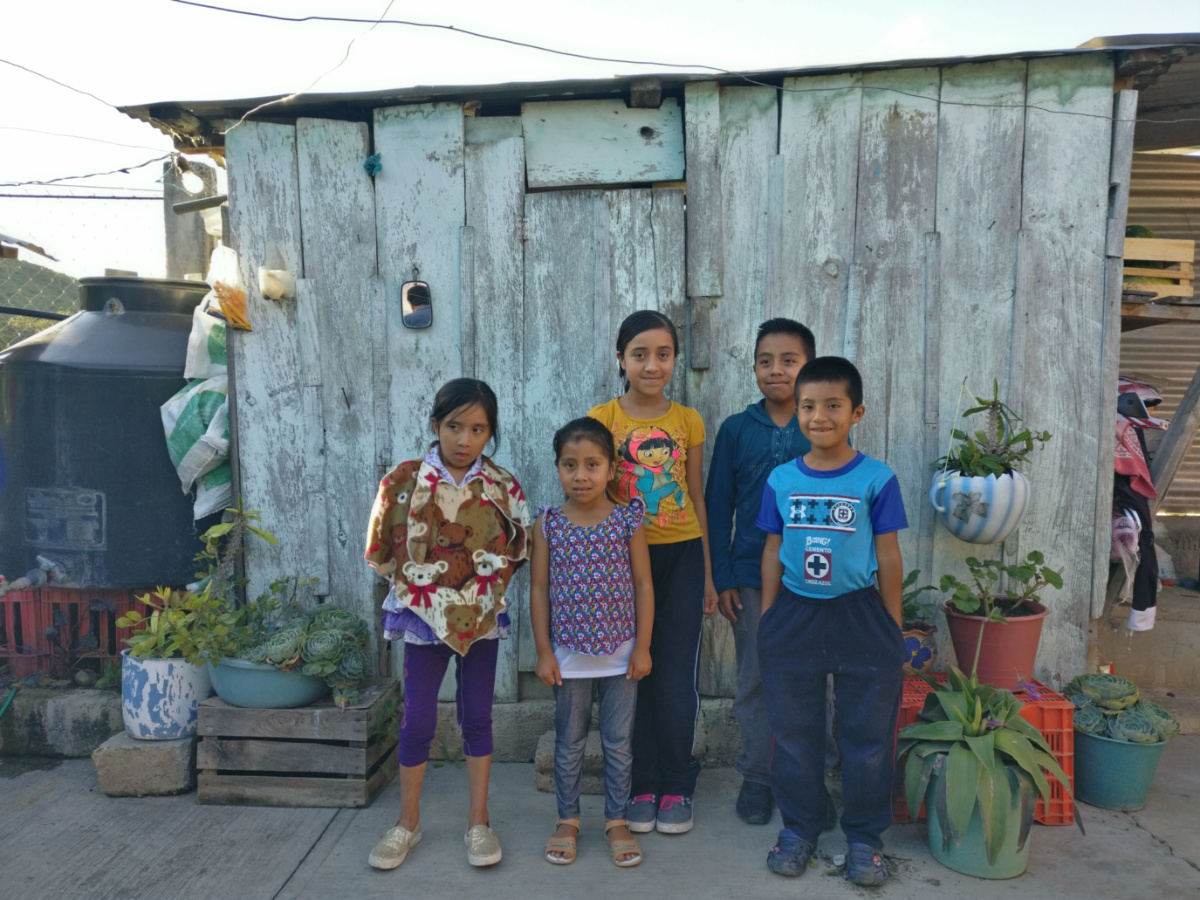
ELLIS HEASLEY, of UK-based religious freedom advocacy CSW, urges Christians to remember – and pray for – Indigenous communities around the world this Christmas…
London, UK
Jesus was born to proclaim good news to the poor, freedom for the prisoners and the oppressed, and recovery of sight for the blind. Every Christmas, this rings powerfully true to CSW as we remember Christians around the world who face heightened vulnerability at a time that should be for great celebration. Our prayer is that prisoners would indeed be set free, that oppression would end, and that the poor and the marginalised would be lifted out of poverty.
This year, we are thinking particularly of Christians who are part of Indigenous communities around the world, many of whom face a form of double marginalisation at the intersection between their religion and their Indigenous identity.

Children from El Encanto, Chiapas, in Mexico. PICTURE: Courtesy of CSW
For example, Protestant Christian families in the El Encanto community of Chiapas, Mexico, will be spending this Christmas without water or electricity – as they have done for the past two years now. Tensions began in November, 2016, when the families declined to sign an agreement obliging them to participate in religious activities associated with the majority religion of Roman Catholicism and to help with the upkeep of the local Roman Catholic church. The group also refused to pay an illegal fine of 5,000 pesos ($US254).
In response, local authorities had the families’ water supply disconnected, and harassment has continued ever since. The families are not permitted to receive medical attention in the community, their children have been prevented from enrolling in the local school, and in July, 2020, the authorities instructed the company responsible for upgrading electricity services in the village not to install electricity in the families’ homes.
“While the picture varies from country-to-country, the common thread is this: Indigenous people are too often placed in a second class of citizen within their countries, where, because of their Indigenous identity, the violation of some of their rights is permissible.”
Municipal, state and federal authorities’ attempts to resolve the situation have been insufficient. On numerous occasions they have offered to pay illegal fines imposed on the religious minority to resolve the conflict, which is not an acceptable solution as it reinforces the local leaders’ claim that the fine is justified without doing anything to ensure that freedom of religion or belief (FoRB) is respected in the community.
There was some breakthrough in September, 2022, however, as the public prosecutor’s office, in cooperation with the state human rights commission, prepared a formal complaint to be signed by a representative of the community. It is unclear what the next steps or impact will be, but our prayer is that this is the start of the state government taking more proactive steps to address the situation in this community.
These Christians are not the only families in Mexico in situations like this, nor is Mexico the only country in which FoRB is severely violated in Indigenous communities. In CSW’s brand new report, titled Belief and belonging, we explore this often-overlooked intersection between FoRB and Indigenous rights in four countries: Colombia, India, Mexico and Vietnam.
Much like Mexico, violations of FoRB in Indigenous communities in Colombia are largely carried out by community leaders and local authorities who enjoy the backing of the courts, which have ruled that collective cultural rights take precedence over the right to FoRB. This is a growing and commonly accepted view in many quarters of the international community, and a highly dangerous perspective which only increases the marginalisation of members of already marginalised communities
In the most extreme cases this results in violence and forced displacement. One interviewee from the Arhuaco Indigenous community in Colombia told CSW that he did not consider himself to be forcibly displaced but that he had voluntarily left his community after experiencing threats, harassment, torture and bullying.
Elsewhere, in India, Indigenous individuals who convert to Christianity or Islam have faced severe violence at the hands of Hindu nationalists who have been emboldened by a combination of government rhetoric and controversial anti-conversion laws in several states, while in Vietnam, FoRB violations affecting Indigenous peoples can be directly linked to the policies and actions of the government which is distrustful of large gatherings of non-registered religious communities of Indigenous people because it believes that these communities are actually meeting to plot to overthrow the government.
We rely on our readers to fund Sight's work - become a financial supporter today!
For more information, head to our Subscriber's page.
While the picture varies from country-to-country, the common thread is this: Indigenous people are too often placed in a second class of citizen within their countries, where, because of their Indigenous identity, the violation of some of their rights is permissible.
This must be addressed as a matter of urgency, and our call to the international community is to ensure that the individual rights of all Indigenous people receive the same protections afforded to non-Indigenous peoples. Efforts to make this happen must be led by Indigenous people themselves, elevating voices from both majority and minority communities within those populations.
That is our prayer this Christmas, and we ask you to join us in remembering Christians in Indigenous communities for whom this period may be spent in fear of harassment or violence, without basic services, and in some cases even without their own homes. May they know the promise of Immanuel – God with us – this Christmas.

Ellis Heasley is public affairs officer at UK-based religious freedom advocacy CSW.






